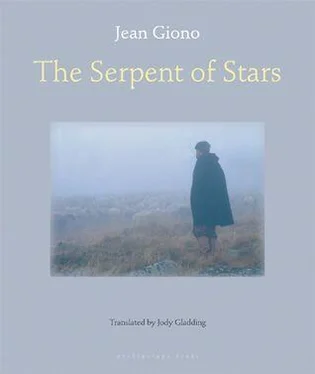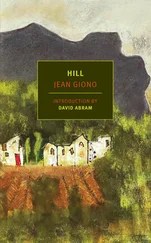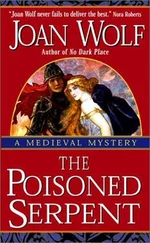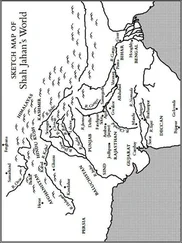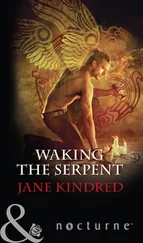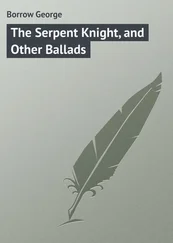And so, beginning from that moment, the infant-poem could walk sturdily. It was alive and well.

THE STAGE, as I’ve said, is a square clearing of about twenty paces. At each corner is a fire which dances on pine and cedar boughs, heaps of dry thyme. Four shepherds are in charge of supplying the wood and herbs and, sometimes, when the flame dies down, they fan the coals briskly with leafy branches. These are actors that really count! First of all, it’s from them that the light comes and it’s from them that the scent comes, that essence of resin and burnt juniper that thickens the air and drifts off towards Ganagobie and makes the villages in the woods nervous.
The drama is accompanied by music, music for three instruments. I won’t talk about that first instrument from which everything springs, from which all music has run, the freely singing earth which is there all around with its weight of animals, herds, trees, grass, wind, springs, the Durance rumbling deep in the valley. The others are the aeolian harp, the tympon, and the water jug. I’ve said how the aeolian harps are made, how the man merges with them to play them, or more precisely, to play the trees and the wind. But, the mixture of that human touch and that breath, master of time and racer through space, creates a god’s voice which goes all the way to the harmonious depths of the horror.
It is a shepherd’s invention. One of those secret and solitary harps unleashed fear throughout the whole region of Queyras, in ’12 or ’13, a little before the war. This was a village of simple people, with goiters heavy as melons, and for that reason, with heads bent toward the earth. This country has no water. The village is built on rock, hollowed by three long, dark and rumbling underground wells. The opening of the wells, capped by a hood of stone, remains locked with large key all day. The gate is only opened in the evening, just time for the women to draw buckets, to fill pails, to redden their hands on the rust from the chains, to wet their feet in the cool water, to laugh. . That particular shepherd, they say, wanted to drink and couldn’t. He was told it was too late. He argued. Arguments with men with goiters always end in yelling and stone throwing. Our shepherd climbed back up his hill to his pasture and there, he made his harp. He claimed, afterwards, to have made it to distract himself, having, of course, forgotten the star branded on his forehead by a piece of flint. What’s certain is that if this harp was made by chance, chance is a great master, because it gave it exactly the resonance of flowing water. It sounded like a huge singing spring. What’s more, having no pine-lyre at this elevation, the shepherd hung it in the branches of an oak. Thus, it was much bigger than usual and it entered the earth more deeply by long radish-like roots.
At the first sounds of music, the whole village cocked its ear, grunted, grabbed pails and tubs, buckets, pitchers, jugs, and rushed toward the valley where the water seemed to be running. But only the wind ran there. They rubbed their eyes, they wondered aloud to each other, they looked right and left without seeing anything, and yet the sound of water was all around them. At the edge of that dry valley, its stones cutting like a hot knife, they got so excited in their desire for live water, that under the sway of that harp, in the supple open air, they began to imitate the movements of swimming, throwing themselves head first onto the rocks, stretching out in the thorns, scraping themselves, scratching themselves, tearing at their goiters, bloody, drunk with despair and desire. Evening came, when the wells were to be opened. They were opened and from them poured, weaker but also blacker, that song of water which came to sing there through the spell of those huge oak roots thrust deep into the rock.
Then there was complete chaos. They thought their water was escaping because some underground river had suddenly given way. Caliste went down into his well to touch the water with his hand and never came up again. And, assembled on the clearing that overlooks the valley of Saint-André, the whole village began to howl at his death like a family of wolves. Our shepherd, having gone too far, made a fast escape into the region of Briançon. Some hunters from Saint-André found the harp, cut the strings, and peace returned with the silence.
So, this is a kind of music that must be measured out, the muted strings not used too much, or just used as a starting point, as a landing for letting the clear notes take wing and fly off. The muted notes have the sadness of doves’ songs. The wind is not perfectly round like a iron rod, but made of waves and undulations. It coos and warbles, and if the pleasant notes sound like bird calls, the muted notes weigh on your heart and make the clouds seem like fat pigeons.
Here, the wind harps are at a distance from the clearing of at least a good thousand paces. They must be set up on the ridge to allow them the life of the wind. Then, too, too close up, they would have cut off and killed the narrator’s voice. Up above, they are exactly in their place and their distant music is very much the base it must be in the drama.
There are five harps. They are worked by five shepherds and conducted by a sixth who stays there on the stage and whistles through his fingers. Once for silence, twice for sound.
Thus, through the play, the music of these harps unfolds. It doesn’t follow the turns in the action. It is distant and monotone like the voice of the world.
TH E TYMPON is that flute with nine pipes, the flute of play and of distress. It has one scale and two deep, bass Cs, one at the beginning of the scale, one at the end. These somber notes are always there, ready to sound the alarm at each end of the song.
When all you know is how to play the flute, you only blow into the seven pipes by making the reeds flow before your mouth. That makes a flute song. But, if you’ve grown accustomed to the tympon from long use and when you truly know how to play it, that adds the leavening to the dough, believe me. Right in the middle of the songs, there’s the deep note that sets ringing the whole black basin at the bottom of your heart meant to hold your reserve of tears. Then, you remember in a flash the days of distress. The harsh mountains appear, climbing the sky like she-bears, and the flute song becomes a lyric of life, a verb alive as the day, made at once of joy and sadness.
You can recognize true tympon players by two very specific signs. This is what they are. When a shepherd sits down, the dog comes to lie beside him, the flocks remain a little farther away. If he’s a tympon player, every time, you’ll see a sheep approach, lay its head on the man’s knees and wait for solace. The second sign is that a tympon player, when he’s alone, when he’s walking alone along his way, he looks behind him ten times, twenty times, to try to see what is back there following him, whose steps he hears in his head.
THE GARGOULETTES are the water flutes. There are two kinds. One is made out of elder wood. They are like pipes. The other is made out of glazed earth. They are like pitchers, and they imitate bird songs.
With little gargoulettes, you can very easily hunt quail or any bird with a trilling song. They imitate them, they call to them, they sound exactly like the female. But the gargoulettes the shepherds use are very big. Their song is at once bird song and horse whinny. Ten men blowing hard into ten gargoulettes can make music that turns you to salt. You have only enough time to raise your eyes to search the sky for a flying winged horse.
The instrument isn’t beautiful, just a pipe or a pitcher, and it takes enormous breath to move and puncture water. The players bind their cheeks with a handkerchief or a scarf. Gargoulette music has great power over animals. After just a little, it makes them mad for love, females as well as males. It has the power of springtime. Extending from where a man plays a gargoulette alone on a hill, you can see the rays afterwards, the marks in the grass of all the love struggles of beasts who heard him. They radiate out like the spokes of a wheel.
Читать дальше
